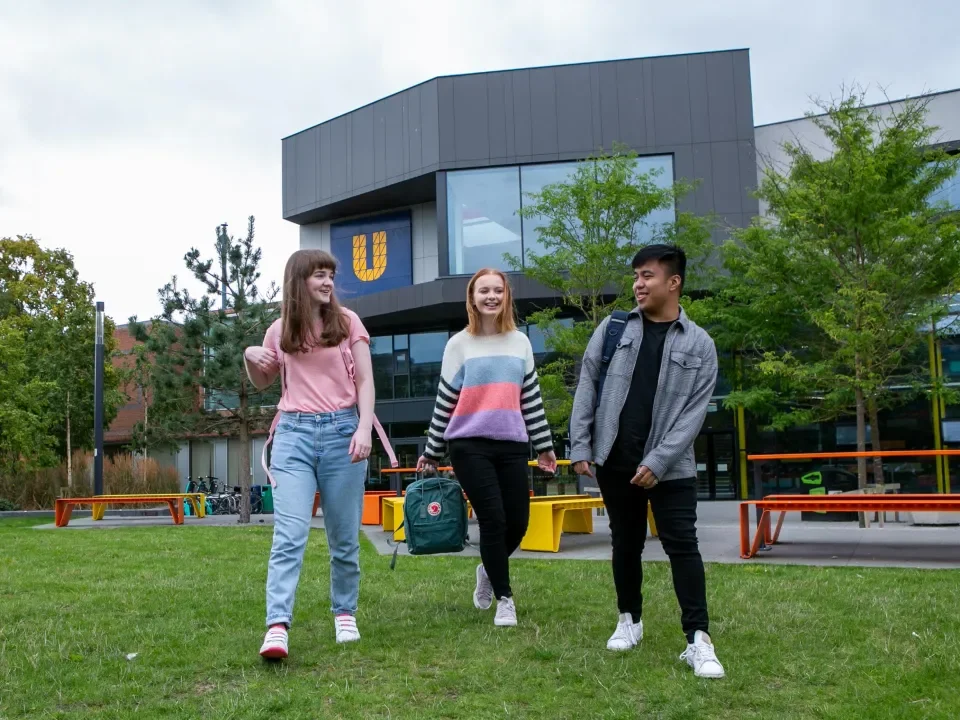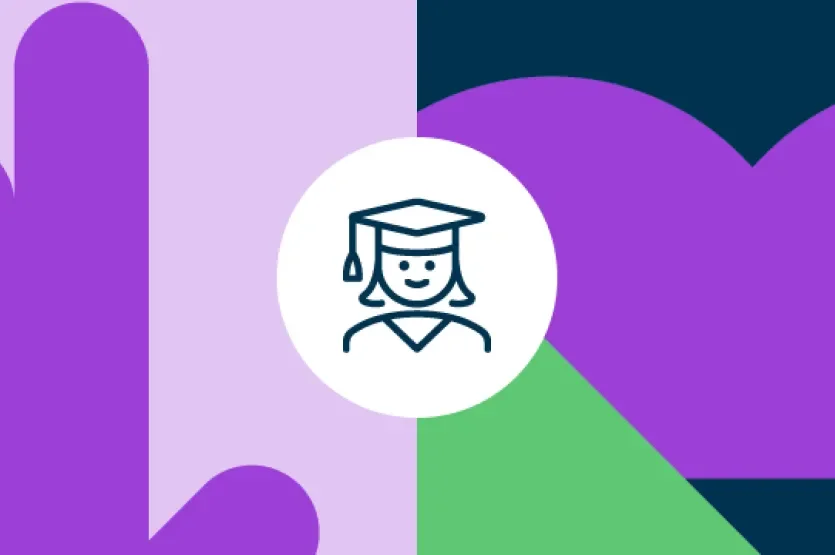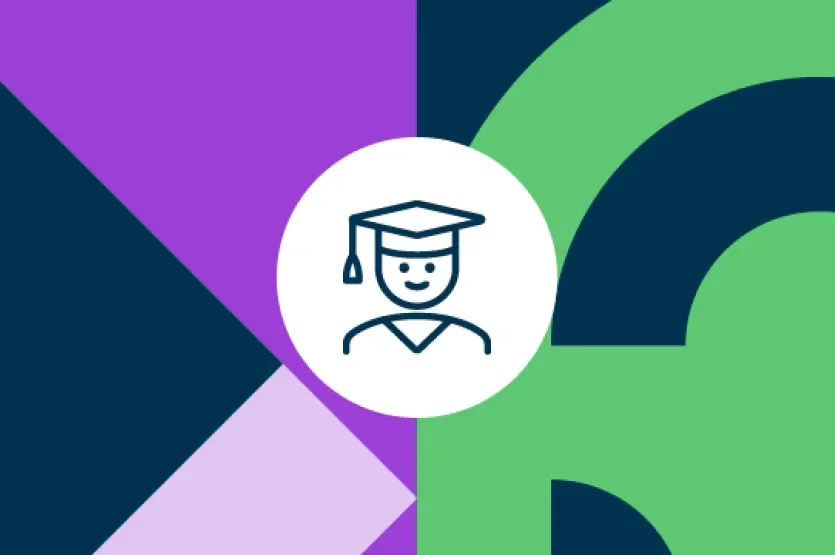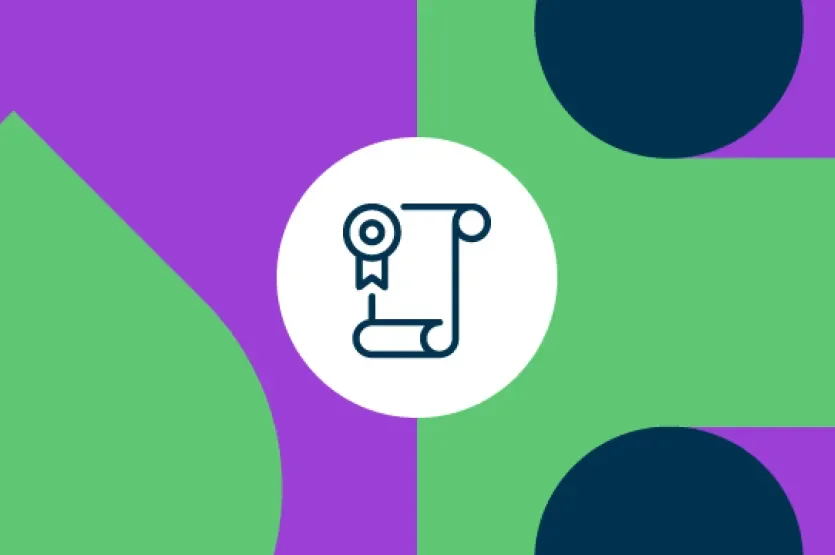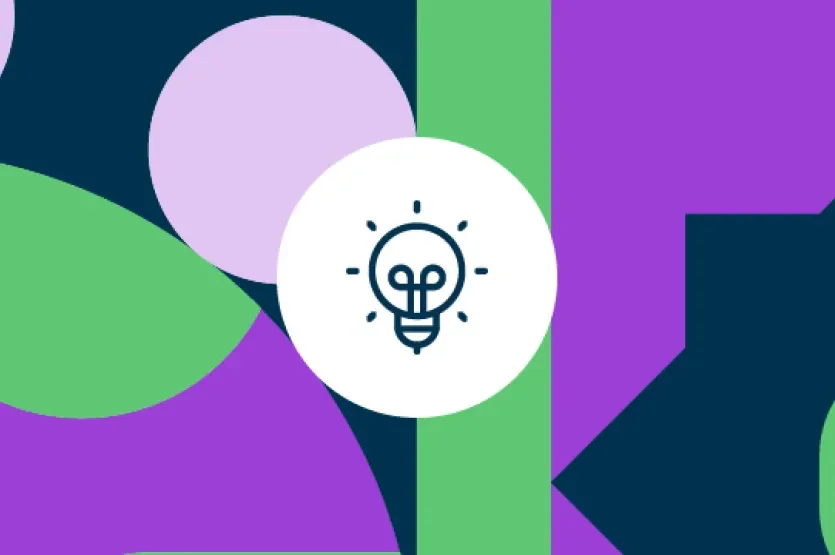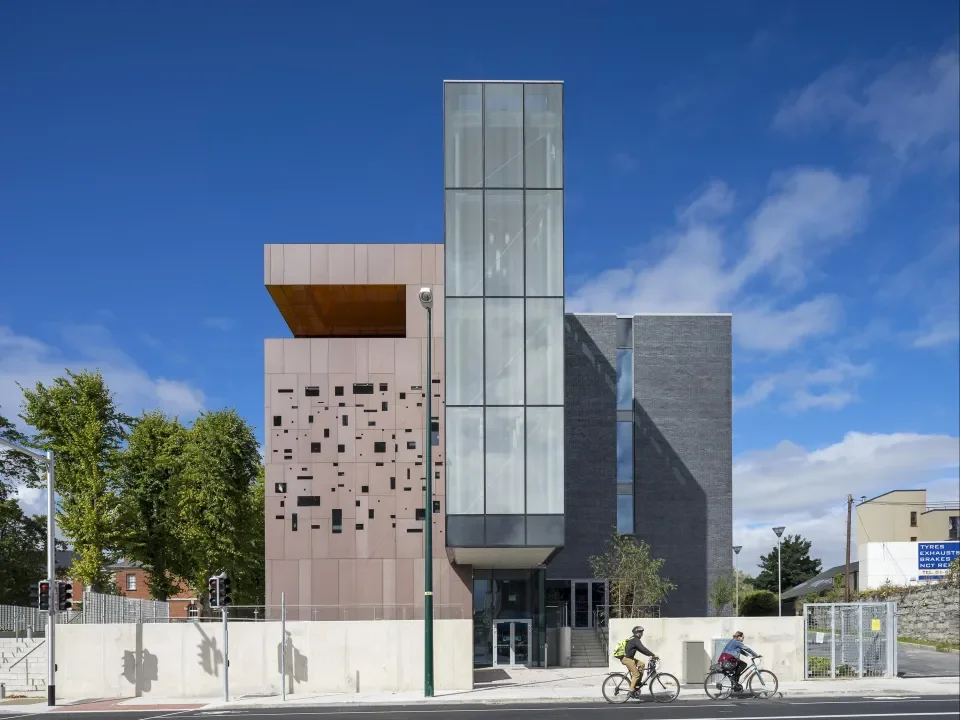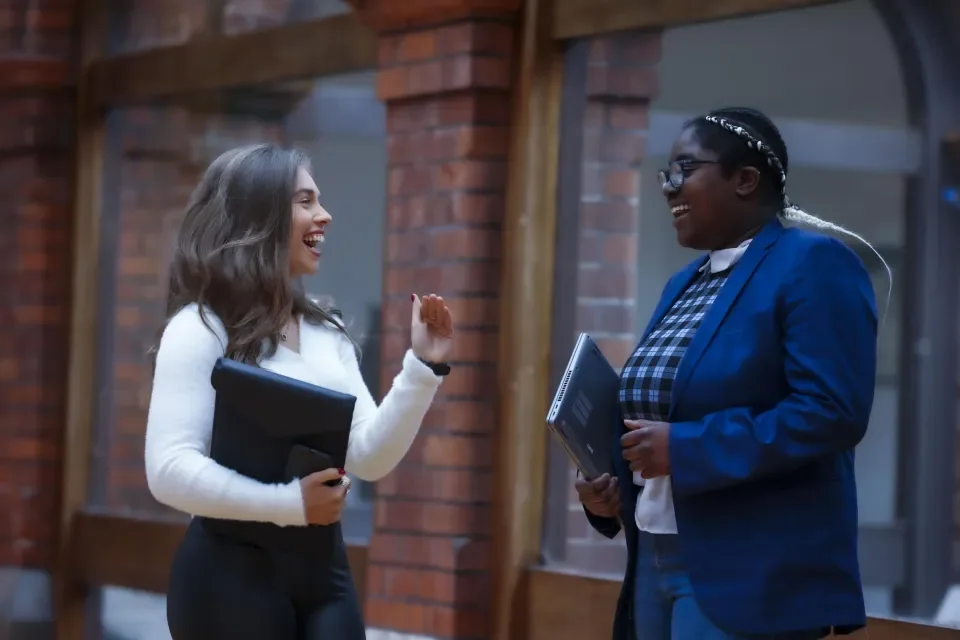Overview
Education Theory
You will explore how teachers and trainers engage their learners and develop their understanding in any given topic. You will look at how people learn, how to use a variety of teaching methods to appeal to different learning styles and how to tailor your planning to get the very best from each learner.
Teaching Skills and Placement
As you develop your skills, you will be given practical advice on how to improve as a teacher trainer. You will also learn how to plan and construct lessons and then you will get the chance to practise your teaching in a safe environment before getting work experience in real life environments.
Why DCU
DCU People
Entry Requirements
There are no additional entry requirements for this programme apart from the general entry requirements for admission to the university.
There are no additional entry requirements for this programme apart from the general entry requirements for admission to the university.
Please visit our Admissions webpage for details on course requirements or how to apply to DCU.
Please visit our QQI FET webpage for details on DCU courses, open days, campus tours or school visits.
To apply to DCU, please visit www.cao.ie.
Mature entry is a competitive process. Applicants must demonstrate:
- a genuine interest in the programme(s) they are applying for
- academic experience and competency in their chosen field of study
- an ability to engage and succeed on the programme
All applicants must complete a statement of interest to be considered for the mature application route.
For further guidance on the mature application process please see the CAO Website
Applicants that have completed at least one year of study at NFQ Level 6, 7 or 8 at another institution may apply to continue their studies on a similar programme at DCU. There should be substantial overlap in content between the two programmes to be considered for a transfer. The specific criteria for entry may vary for each programme. Results and other supporting documentation must be submitted to CAO by the closing date of 1st July. This is a competitive application process for a small quota of advanced entry places, so early application is advised. Submission of an application does not guarantee an offer. Offers are made on a rolling basis until all places are filled. Please note: Applicants should also consider applying through the appropriate route for first year entry to the programme they are interested in. This application process is only for advanced entry.
International candidates are expected to have educational qualifications of a standard equivalent to those outlined above. In addition, where such candidates are non-native speakers of the English language they must satisfy the university of their competency in the English language. Click here for further information on international applications.
Course Structure
There’s a strong demand for educators across Ireland, from individual communities through to large organisations, and the Education and Training degree will give you a firm foothold in an area with excellent employment opportunities. Our practice-based approach to learning, teaching and assessment includes psychological foundations and a wide range of methodologies. You will acquire practical knowledge on key areas such as curriculum design, implementation, assessment and education policy, while also developing skills in information technology for education and interpersonal communications for multicultural/diverse societies.
The degree contains two strands of study:
3 year option - level 8 honours degree
4 year option - level 8 honours degree which allows registration with the Teaching Council of Ireland as a teacher in Further Education
Completion of the degree in three years earns you a level 8 hons BSc in Education and Training. Completion of the optional placement year extends the degree to four years and awards the level 8 hons BSc in Education and Training (Further, Adult and Continuing Education), and enables you to register with the Teaching Council of Ireland as a Further Education Teacher.
Delivery Modes:
The full-time delivery mode is delivered during traditional university hours.
- Academic Writing and Reading
- Citizenship, Diversity and Inclusion
- Communication Skills
- Curriculum Development
- Entrepreneurship
- Human Development
- Sustainable Development
- Teaching Preparation
- Advanced Teaching Strategies
- Assessment and Feedback
- Designing instruction for the training environment
- Mediation Skills
- Policy & Structures
- Psychology
- Professional Skills
- Optional placement year in Further Education and Training setting for Teaching Council Accreditation
- Creating Learning Environments using ICT
- Developing a Research Perspective
- Equality, Access and Inclusion
- HR and Training in a Globalised World
- Leadership and the Learning Organisation
- Philosophy
- Research Project
- Sociology
- Values, Identity and Intercultural Learning
Fees and Funding
Fees
How To Apply
Applicants presenting EU School Leaving/QQI Level 5 examinations: Apply through the Central Applications Office (CAO) by 1st February.
To apply for this programme:
Candidates should apply directly here. Here's a quick step by step guide if you need help with your application.
Please provide
- Academic Transcripts for each and every year of study with English translation, if applicable.
- If applicable, provide evidence of competence in the English language as per DCU entry requirements.
Applications are accepted on an ongoing basis up to 1st July. All Non-EU candidates are advised to apply early, as places are limited.
All mature applicants apply through the CAO by 1st February. For further information and for special application procedures for mature students, please click here
Applications are made via the CAO Advanced Entry route which will open on the 5th of November to the 1st of July.
Please see Application Procedures or E-mail ugadmissions@dcu.ie.
Candidates required to apply through the CAO can apply online at www.cao.ie
Life On Campus
At DCU, our students can expect a unique campus experience. We are known for our excellent teaching and learning facilities, our active clubs and societies, and our great social and sporting facilities. All this makes DCU an exciting place to be.
DCU has three academic campuses; Glasnevin, St. Patrick’s and All Hallows (both in Drumcondra), all close to Dublin City centre.
They can be reached by public transport, Dublin Bus and Bus Éireann, with our Drumcondra campuses a ten minute walk from Drumcondra Train Station. Glasnevin is a 20 minute walk from St Patrick’s and All Hallows. They are also linked by Dublin Bus.
Each campus has a library (O’Reilly, Cregan and Woodlock Hall), study spaces, restaurants, and on-campus residencies. There are sports facilities on Glasnevin and St. Patrick’s, and there is a dedicated sports campus, St Claire’s, located near Glasnevin on the Ballymun Road.
DCU’s 19,000 students have access to exceptional teaching and learning facilities across our three academic campuses.
These include modern learning theatres, research centres, a new media and TV studio, radio/podcast studios, computer suites and advanced labs in the areas of Languages, Engineering, Physics, Chemistry and Biotechnology, as well as a Sports Performance centre and a training hospital ward. In 2021, we opened our first virtual reality ‘Leadership Lab’, which is located in our Business School.
We continue to improve and update our facilities. For example, construction of a new world-class STEM facility is underway on the Glasnevin campus. With capacity for an extra 3,000 STEM students, this facility will advance DCU’s international reputation for excellence in science and health, computing and engineering disciplines.
Studying in DCU isn’t just about course work. The university is rich in student life and activities.
There are more than 140 clubs and societies for students in DCU, with ‘Clubs & Socs’ days taking place on both the Glasnevin and Drumcondra campuses at the start of the academic year. They span everything from rugby to rock climbing, anime to jazz.
For many students, sport is an important part of the DCU experience. DCU’s Sports Complex boasts a 25 metre swimming pool, fitness centre gym, all-weather pitches and squash courts, as well as soccer, GAA and rugby pitches. DCU Dóchas Éireann, the university’s GAA club, is the largest third level Gaelic Games club in the country. Meanwhile, DCU Athletics has been Ireland’s highest achieving university club for many years. And DCU has dozens of other clubs to get involved in, from Archery to Weightlifting.
The Glasnevin campus is home to our purpose built, state-of-the-art student centre, The U, which serves the needs of a rapidly growing student body. Here, you will find the Student Leadership and Lifeskills Centre, performing arts and cultural spaces for students and the wider community, and the Entrepreneurship and Innovation Hub. Also located on our Glasnevin campus is The Helix, our renowned performing arts centre.
On our St Patrick’s campus, we have the Java Student Hub, a vibrant, warm and welcoming space where students can meet for coffee, play music, use the projector to watch events, or just relax. The walls of the Java Hub were designed based on the cultural history of St Patrick’s Campus, including the special references to the notable sporting history and history of the arts.
We have a number of academic, professional and social supports for students.
Student Advice & Learning Skills Centre - Offers a wide range of supports and services to students and advice
The Writing Centre - drop-in writing workshops for students through the academic year
Maths Learning Centre - provides maths support for students of all ability levels with maths modules
Student Learning - facilitate the transition from passive to active learning for students at DCU, by teaching study skills, nurturing critical thinking and building student confidence.
Careers work with students to help them on their professional journey into graduate employment.
Our student support team offers a comprehensive support programme, helping students make that all important transition into university life and focusing on building confidence and skills which are key to success at third level.
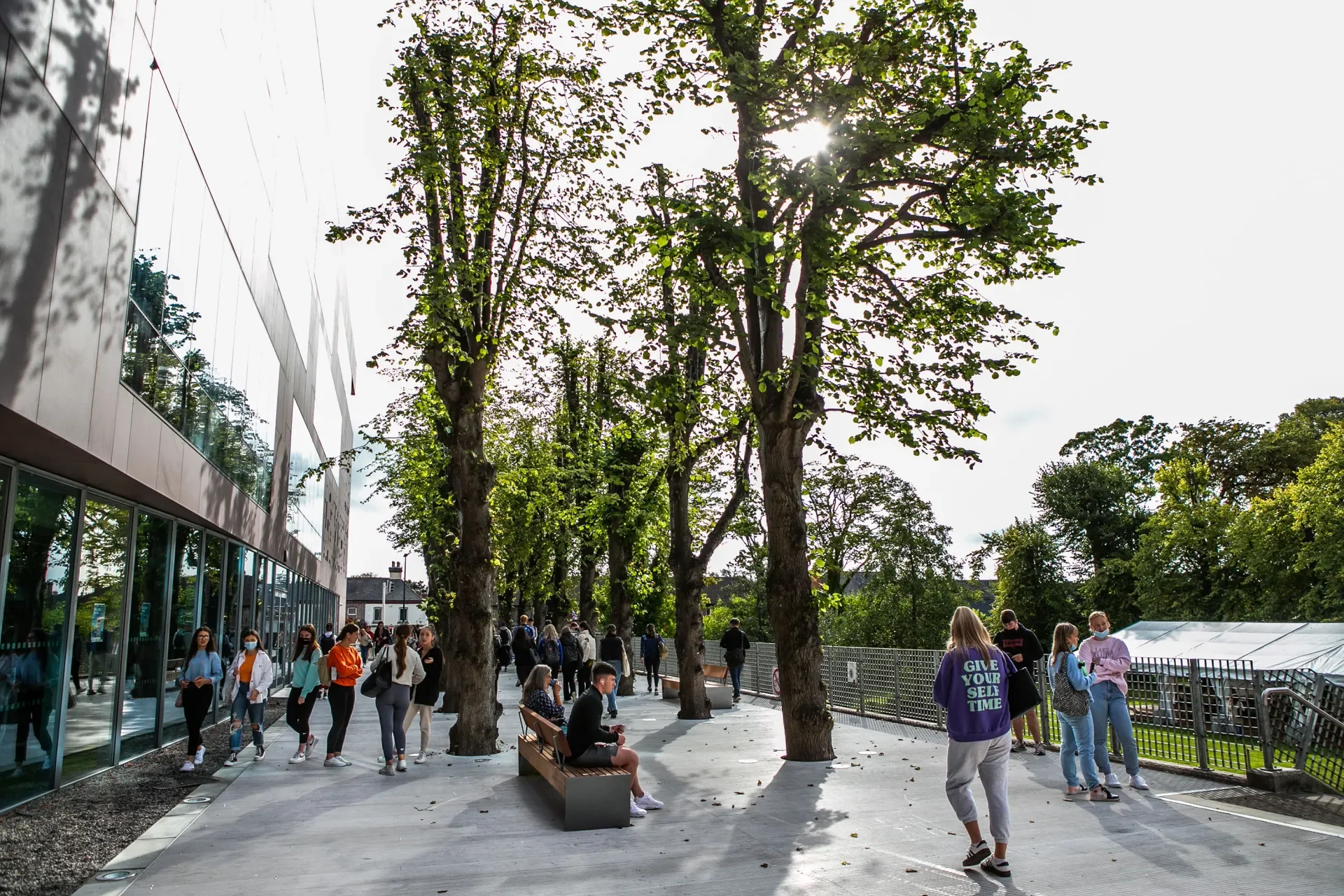
DCU St Patrick's Campus
FAQs
What courses are offered by the DCU Institute of Education?
DCU Institute of Education brings together students of education and provides a rich menu of undergraduate courses across all sectors from early childhood, to primary and post-primary and further and higher education. We offer a range of taught and research postgraduate courses at doctoral, masters, diploma and certificate level and have a distinguished record in providing continuing professional development.
Is there Garda vetting for students who study DCU Institute of Education courses?
Garda vetting is required for all students who have unsupervised access to children and vulnerable adults as part of their studies at DCU. Applicants must successfully pass the Garda vetting process in order to complete the registration process.
What are the potential teaching pathways for primary, post-primary and further education and training offered by DCU?
Primary Teaching Pathways
Undergraduate*
Postgraduate**
- Professional Master of Education (Primary Teaching) - DC970
* Please ensure that you consult minimum entry requirements and CAO points for all undergraduate programmes
** Please ensure that you consult minimum entry requirements for all postgraduate programmes
Post-Primary Teaching Pathways
Undergraduate*
- Bachelor of Religious Education & English or History or Music - DC010 | DC011 | DC012
- Bachelor of Education in Gaeilge and French or German or Spanish - DC013
- Bachelor of Education in Technology, Engineering and Graphics - DC015
- Bachelor of Science (Hons) in Science Education - DC203
- Bachelor of Science (Hons) in Physical Education with Biology - DC205
- Bachelor of Science in Physical Education with Mathematics - DC206
Postgraduate**
- Professional Master of Education (Post-Primary Teaching) - DC905
* Please ensure that you consult minimum entry requirements and CAO points for all undergraduate programmes
** Please ensure that you consult minimum entry requirements for all postgraduate programmes
Further Education and Training Teaching Pathways
Undergraduate*
- BSc (Hons) in Education and Training (Further, Adult and Continuing Education) - DC235
* Please ensure that you consult minimum entry requirements and CAO points for all undergraduate programmes


